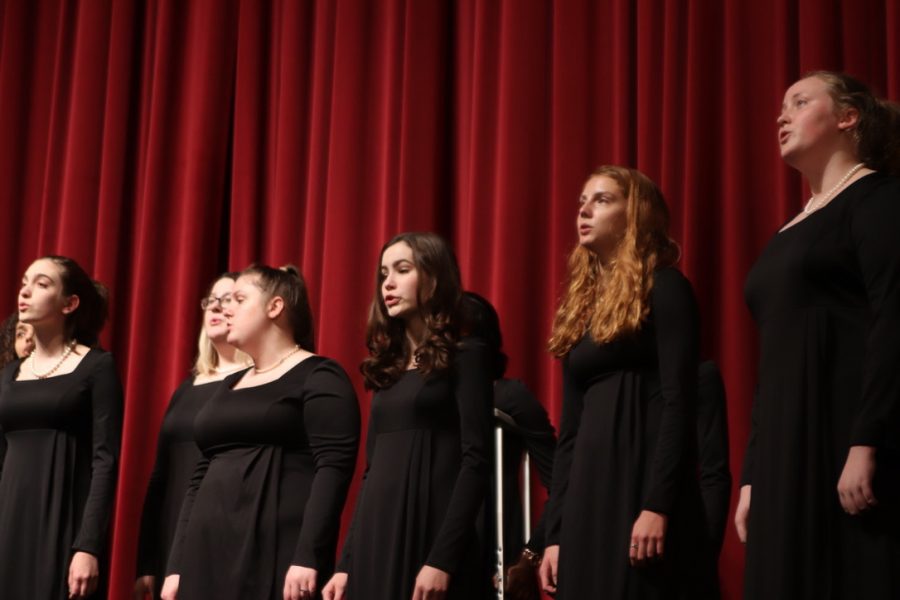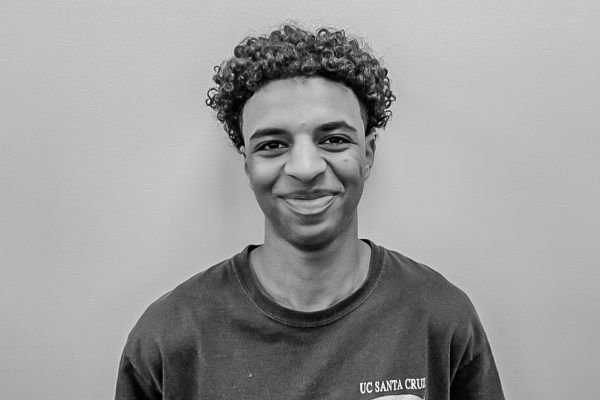Becoming Better Musicians
A group of students sing for their performance in the competition.
April 30, 2019
The music wing was marked with signs stating that all must be quiet beyond a certain point. Students stand, waiting nervously with their instrument as the other students perform their own selected pieces. The annual solo and small group competitions have come and gone to City High once more, taking place on April 18 through April 24 this year. Students from band, orchestra, and choir were able to create a small group or compete on their own in the contest.
“It’s incredibly enjoyable to participate in this every year. We get to play a piece of music that we personally choose, which means we have more motivation to work on it,” Oliver Myers ‘20 said. “It can be a bit of a stress inducing event, but we harness that energy to galvanize us into working harder on the piece.”
These groups were primarily supposed to self lead, having the students make the administration choices, as well as directing and conducting themselves during the actual performance.
“For City High, directors can help soloists and/or groups as needed but we really want the performances-and rehearsals leading up to it-to be student-led.” Band Director Aaron Ottmar said. “We can clarify any questions and offer some suggestions but we really want the students to be self-directed. Solo ensemble contest is a wonderful opportunity for students to play in a group of their own and truly take ownership of the whole performance.”
Keeping with the traditional standards of the music classes, students are encouraged to play pieces that fall in the classical/traditional standard. The students are allowed to choose their music, or they can ask the directors for assistance on finding a piece, although the pieces must first be deemed “appropriate” for the contest.
“Solos, duos, trios, quartets, and other chamber-like pieces within the ‘traditional, Classical’ realm of choral and instrumental music.” Ottmar said. “Then the music they perform should be deemed appropriate and acceptable, arrangements of pop music and/or mainstream music should be avoided, by their large ensemble director before they perform.”
The contest themselves bring different students from each musical specification, each one for a different reason. For some, the contest is about improving their own playing skills, for others it is more about the actual competition. Regardless of what the original reason for joining, all people
“[For us] it has just become a tradition,” Myers said. “Our section leader, John Bounds, was the one who convinced us to give it a shot the first year, and we’ve been doing it annually ever since.”
One of the main reasons that people participate in the competition is the benefits it offers to the playing skills of the performers. These benefits can range from learning how to play in smaller groups to bettering the students confidence to just helping their overall sound.
“Presenting a performance without a conductor/director at first can be very different but, ultimately, is extremely beneficial in my opinion.” Ottmar said. “I believe that it causes students to really know each other’s parts and really serve as their own conductor and open their ears to listen critically, even more than they usually would in a large ensemble setting.”
One thing that always turns students away from participating in the contest is the stigma of losing. However, Ottmar wants people to understand that there is no risk to participating in the concert.
“There is absolutely no risk in doing this contes,” Ottmar said. “The worst thing that will happen is that you will become a better musician.”


































